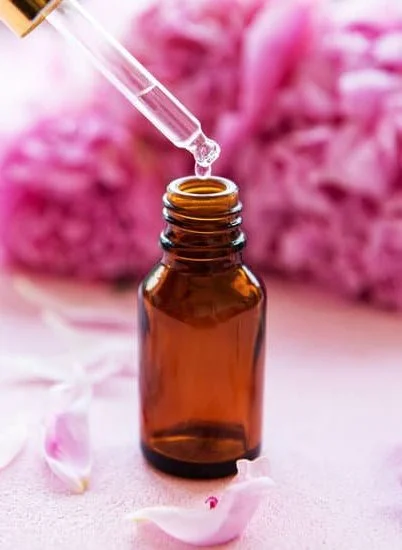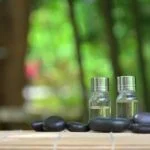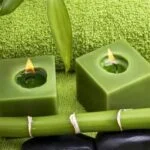Holistic aromatherapy takes a comprehensive approach to health and wellness, incorporating the use of natural essential oils to promote physical, emotional, and spiritual well-being. This article delves into the concept of holistic aromatherapy, highlighting its benefits in promoting overall wellness. By exploring the interconnectedness of mind, body, and spirit, holistic aromatherapy offers a unique perspective on healing and self-care.
The origins and history of aromatherapy trace back to ancient civilizations where essential oils were used for their therapeutic properties. Through centuries, the use of aromatic compounds has evolved and expanded, leading to the development of holistic approaches that recognize the importance of integrating essential oils into overall wellness practices. Understanding this historical context provides insight into the rich tradition and efficacy of holistic aromatherapy.
In this article, we will delve deeper into the understanding of holistic approach to aromatherapy, including key principles that guide its practice. By emphasizing the importance of using natural, pure essential oils and exploring various techniques and practices used in holistic aromatherapy such as massage, inhalation, and diffusing, readers will gain a comprehensive understanding of how to incorporate these beneficial practices into daily life for overall well-being.
Origins and History of Aromatherapy
The origins and history of aromatherapy date back thousands of years, with evidence of its use found in ancient civilizations such as Egypt, China, and India. In these early societies, aromatic plant compounds were used for their healing properties and spiritual significance. The practice of using essential oils for medicinal and therapeutic purposes continued to evolve over the centuries, eventually leading to the modern concept of holistic aromatherapy.
Tracing the Origins of Aromatherapy
Aromatherapy has been traced back to ancient civilizations where it was used in religious ceremonies, as part of medical treatments, and for its aromatic qualities. The Egyptians were known for their extensive use of aromatic oils and resins in embalming practices as well as for medicinal purposes. Similarly, Chinese and Indian cultures have a long history of using herbs and plant extracts for healing rituals and traditional medicine.
Historical Use of Essential Oils
Throughout history, essential oils have been valued for their therapeutic properties, with records indicating their use in treating various ailments. It wasn’t until the early 20th century that modern aromatherapy began to take shape, thanks to the work of individuals like Rene-Maurice Gattefosse and Jean Valnet in France. Their research and writings helped popularize the use of essential oils for holistic health and wellness.
As holistic aromatherapy continues to gain recognition in mainstream healthcare practices, it’s important to understand its rich historical roots and how ancient traditions have influenced its development into a comprehensive approach to well-being that considers not just physical health but also emotional, mental, and spiritual harmony.
The discipline recognizes the use of different types of natural ingredients obtained from plants including flowers or aromatic herbs (like lavender or rosemary) which can provide numerous benefits when it comes to alleviating different conditions ranging from chronic illness management all through positive emotional reinforcement throughout life’s journey; thereby offering a complete approach towards overall wellness.
Understanding Holistic Approach to Aromatherapy
The holistic aromatherapy definition involves an approach that considers the interconnectedness of the mind, body, and spirit in addressing overall health and well-being. This approach recognizes that each individual is unique and seeks to create balance and harmony within a person’s entire being. Holistic aromatherapy takes into account not only physical symptoms but also emotional, mental, and spiritual aspects of health, utilizing essential oils to promote healing on multiple levels.
One of the key principles of holistic aromatherapy is the use of natural, pure essential oils. These oils are derived from plants and contain the plant’s natural fragrance compounds, which have been used for centuries for their therapeutic properties. In holistic aromatherapy practice, it is important to select high-quality essential oils that are free from synthetic additives or contaminants to ensure their effectiveness in supporting holistic wellness.
A holistic approach in aromatherapy also involves tailoring treatments to each individual’s specific needs and preferences. This can include creating personalized blends of essential oils based on a person’s physical and emotional condition, as well as their personal scent preferences. By taking a comprehensive view of an individual’s well-being and customizing treatments accordingly, holistic aromatherapy aims to address the whole person rather than just treating isolated symptoms.
| Holistic Aromatherapy Principles | Benefits |
|---|---|
| Use of natural, pure essential oils | Promotes healing on multiple levels |
| Tailoring treatments to individual needs | Comprehensive approach addresses whole person |
Key Principles of Holistic Aromatherapy
Holistic aromatherapy is rooted in the belief that health and wellness are achieved through a balanced alignment of the mind, body, and spirit. This approach to aromatherapy emphasizes the interconnectedness of these elements and seeks to address healing at a holistic level. The use of natural, pure essential oils is fundamental to this practice, as these oils are believed to contain the aromatic compounds that can promote holistic well-being.
One key principle of holistic aromatherapy is the understanding that each individual responds uniquely to different essential oils, scents, and aromas. This principle highlights the importance of considering an individual’s specific needs, preferences, and sensitivities when using aromatic compounds for therapeutic purposes. Additionally, another key principle involves recognizing the synergistic effects of combining different essential oils to create powerful blends that can address multiple aspects of well-being simultaneously.
In holistic aromatherapy, it is important to consider the ethical sourcing and sustainable production of essential oils. This principle emphasizes the significance of using high-quality essential oils that have been extracted ethically and sustainably to ensure their purity and effectiveness. Furthermore, the principle of education and empowerment underscores the importance of providing individuals with knowledge and resources to make informed decisions about incorporating aromatherapy into their holistic wellness practices.
| Principle | Description |
|---|---|
| Individualized Approach | Recognizing unique responses to essential oils based on individual needs, preferences, and sensitivities. |
| Synergistic Blending | Understanding the combined effects of different essential oils in creating therapeutic blends. |
| Ethical Sourcing | Emphasizing the use of high-quality essential oils obtained through ethical and sustainable practices. |
| Education and Empowerment | Providing knowledge and resources for informed decision-making regarding aromatherapy. |
Holistic Aromatherapy Techniques and Practices
When it comes to holistic aromatherapy, there are various techniques and practices that are used to harness the therapeutic benefits of essential oils. These techniques aim to promote overall well-being by addressing the physical, emotional, and spiritual aspects of an individual. Here are some key holistic aromatherapy techniques and practices:
- Inhalation: One of the most common ways to use essential oils in holistic aromatherapy is through inhalation. This can be done by using a diffuser to disperse the aromatic molecules into the air, or simply by inhaling the scent directly from the bottle or from a few drops on a tissue. The inhalation of essential oils can have immediate effects on mood, stress levels, and mental clarity.
- Massage: Aromatherapy massage combines the benefits of therapeutic touch with the healing properties of essential oils. By diluting essential oils in a carrier oil and applying them to the skin through massage, this technique can help promote relaxation, ease muscle tension, and improve circulation. The combination of touch and aroma makes this practice particularly effective for holistic healing.
- Diffusing: Using an essential oil diffuser is a popular way to create a holistic aromatic environment at home or work. Diffusing essential oils not only adds pleasant scents to a space but also delivers their therapeutic properties through inhalation. Different combinations of essential oils can be diffused to achieve specific effects such as relaxation, energy enhancement, or mental clarity.
Incorporating these holistic aromatherapy techniques and practices into daily life can contribute to an overall sense of well-being by addressing both physical and emotional needs. Whether it’s through inhalation, massage, or diffusing, these practices allow individuals to experience the full range of benefits that pure essential oils have to offer in their holistic approach to wellness.
Holistic Aromatherapy and Mental Health
When discussing the holistic aromatherapy definition, it’s important to understand the impact of aromatic compounds on emotional and mental well-being. Holistic aromatherapy takes into account the interconnectedness of mind, body, and spirit, acknowledging that emotional and mental health are as crucial as physical health in overall well-being.
Aromatherapy has been used for centuries as a natural way to support mental health, managing stress, anxiety, and mood disorders. The use of essential oils in holistic aromatherapy can have a profound effect on one’s mental state, promoting relaxation, reducing anxiety, and uplifting mood.
The aromatic compounds found in pure essential oils have been shown to have an influence on the limbic system of the brain, which is responsible for emotions and memory. When inhaled or applied topically, these compounds can trigger responses that can positively impact one’s mental state.
For example, lavender essential oil is known for its calming properties and is often used to promote relaxation and alleviate anxiety. Similarly, citrus essential oils like bergamot or sweet orange are used to uplift mood and promote a sense of joy and positivity.
In addition to their direct impact on emotions, essential oils also have the ability to support overall well-being by promoting quality sleep and reducing symptoms of stress-related conditions. Incorporating holistic aromatherapy practices such as diffusion or topical application of essential oils can be an effective way to support mental health in a gentle and natural manner.
By embracing holistic aromatherapy as part of a comprehensive approach to wellness, individuals can nurture their emotional well-being alongside their physical health.
Holistic Aromatherapy and Physical Health
The Therapeutic Properties of Essential Oils
One of the key aspects of holistic aromatherapy is understanding the therapeutic properties of essential oils. These potent plant extracts have been used for centuries to promote physical health and wellness. From soothing sore muscles to aiding digestion, essential oils offer a wide range of benefits for the body.
For example, lavender essential oil is known for its calming and pain-relieving properties, while peppermint essential oil is often used to alleviate headaches and improve respiratory function. By incorporating these natural remedies into holistic healing practices, individuals can support their physical well-being in a gentle and effective way.
Benefits for Specific Health Concerns
In holistic aromatherapy, specific essential oils are often chosen to address particular health concerns. For instance, eucalyptus essential oil is commonly used to relieve respiratory issues such as congestion and coughs, making it a valuable tool in supporting lung health.
Additionally, tea tree oil is renowned for its antimicrobial properties, making it beneficial for treating skin conditions like acne or fungal infections. By understanding the unique attributes of different essential oils, individuals can tailor their holistic aromatherapy approach to target their specific physical health needs.
Incorporating Aromatherapy Into Wellness Routines
Integrating aromatherapy into daily wellness routines can be as simple as adding a few drops of essential oil to a bath or diffusing uplifting scents in living spaces. This mindful practice not only enhances the sensory experience but also supports physical health on a holistic level.
For example, using citrus essential oils like lemon or grapefruit can boost energy levels and promote mental clarity, thereby contributing to overall vitality. Whether through topical application or inhalation, harnessing the power of natural plant essences can be an integral part of maintaining physical health within a holistic lifestyle.
As evidenced by the centuries-old tradition of aromatherapy across various cultures around the world, harnessing the therapeutic properties of essential oils is a time-honored practice that continues to empower individuals in their pursuit of holistic well-being. Embracing holistic aromatherapy as part of one’s self-care regimen allows for a deeper connection with nature and oneself, leading to an enhanced sense of balance and vitality in both mind and body.
Integrating Holistic Aromatherapy Into Daily Life
Incorporating holistic aromatherapy into daily life can have a profound impact on overall well-being. By embracing the use of natural, pure essential oils and incorporating aromatherapy practices into daily routines, individuals can experience a variety of physical and emotional benefits. Here are some practical tips for integrating holistic aromatherapy into daily self-care:
1. Creating an Aromatic Environment: One way to incorporate holistic aromatherapy into daily life is by creating an aromatic environment at home and work. This can be achieved through the use of essential oil diffusers, aromatic sprays, or simply by adding a few drops of essential oils to a bowl of hot water. By creating a pleasant and calming atmosphere infused with natural fragrances, individuals can promote relaxation, reduce stress, and enhance overall well-being.
2. Aromatherapy Self-Care Rituals: Another way to integrate holistic aromatherapy into daily life is by incorporating aromatherapy self-care rituals. This can include using essential oils in bath or shower time, creating personalized aromatherapy blends for massage or skincare, or incorporating inhalation techniques such as using essential oil inhalers or spritzing aromatic mists throughout the day.
3. Mindful Aromatherapy Practices: Practicing mindfulness with aromatherapy is another effective way to integrate holistic aromatherapy into daily life. This can involve taking moments throughout the day to pause, breathe in the aroma of essential oils, and consciously connect with the present moment. By engaging in mindful aromatherapy practices, individuals can promote mental clarity, emotional balance, and overall mindfulness in their daily lives.
By implementing these practical tips for integrating holistic aromatherapy into daily life, individuals can experience the full benefits of aromatic compounds in promoting overall well-being.
Remember that Holistic Aromatherapy Definition emphasizes the interconnectedness of mind, body, and spirit in its practice so its important to approach it with intentionality and awareness to achieve optimal results.
Conclusion
In conclusion, holistic aromatherapy offers a comprehensive approach to wellness that encompasses the interconnectedness of the mind, body, and spirit. By incorporating the use of natural, pure essential oils, holistic aromatherapy promotes healing and balance on multiple levels. From its ancient origins to modern holistic practices, aromatherapy has been used to support mental and physical health, as well as enhance overall well-being.
Understanding the holistic approach to aromatherapy involves recognizing the therapeutic benefits of aromatic compounds on emotional and mental health. Aromatherapy has been shown to have positive effects in managing stress, anxiety, and mood disorders. Additionally, essential oils have been used for their physical health benefits, with specific oils offering various therapeutic properties that can support the body’s natural healing processes.
As individuals seek ways to integrate holistic practices into daily life, embracing holistic aromatherapy can be a valuable addition to self-care routines. By creating a holistic, aromatic environment at home and work through the use of essential oils in diffusers or massage techniques, individuals can experience the benefits of aromatherapy in cultivating a sense of calm and balance.
Ultimately, embracing the holistic approach to aromatherapy empowers individuals to take an active role in their overall well-being and create a harmonious relationship between body, mind, and spirit.
Frequently Asked Questions
What Is Holistic Aromatherapy?
Holistic aromatherapy is a form of alternative medicine that uses essential oils and aromatic plant compounds to improve a person’s physical, emotional, and spiritual well-being. It focuses on treating the whole person rather than just the symptoms.
What Is the Best Definition of Aromatherapy?
The best definition of aromatherapy is the use of natural plant extracts, known as essential oils, to promote holistic healing and wellness. These essential oils can be inhaled, applied topically, or used in a diffuser to affect mood and overall health.
What Is Aromatherapy in Simple Terms?
Aromatherapy in simple terms is the practice of using essential oils from plants to promote physical and psychological well-being. These oils can be used through inhalation, topical application, or diffusion to provide therapeutic benefits for various conditions.

Are you looking for a natural way to improve your health and wellbeing?
If so, aromatherapy may be the answer for you.





